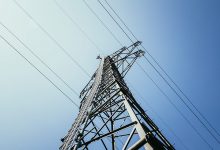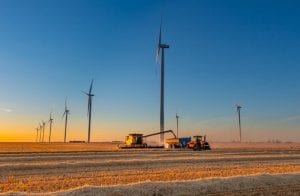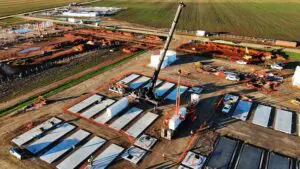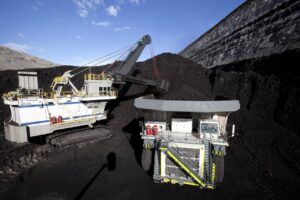Australia’s Smart Energy Council has vowed to mount a “ruthless and pointed” political campaign, as a maelstrom of grid constraints, connection delays and the ongoing federal policy vacuum threatens to send big solar and wind investment over a cliff.
In a hastily convened webinar on Friday, Smart Energy Council chief John Grimes, SEC government relations manager Wayne Smith, and former CEO of the Clean Energy Finance Corporation, Oliver Yates, issued a call to arms to the renewable energy industry.
The move follows an industry crisis meeting with the Australian Energy Market Operator on Tuesday, and the shock withdrawal from big solar of major EPC contractor Downer Group on Wednesday, citing the effective evaporation of the Australian big solar market.
And Downer is unlikely the only major player to abandon ship, as Giles Parkinson reports here: other big and small contractors appear to have also exited the solar industry, at least in part. And word is that investors and developers are also be eyeing the door, and John Laing has put its investments on hold.
“I’ve had a whole bunch of conversations with big renewable energy project developers and major investors,” said Smith during the SEC webinar. “They’re saying that they’re basically done. The sovereign risk… the risk profile is so great, why would you do business in Australia?”
The declaration of a war footing by the SEC – and calls for funding support to back it – comes as wind and solar projects in Victoria and New South Wales continue to have their output constrained, or wait in long queues for connection.
The Clean Energy Council – the rival peak body – estimates there are $6.28 billion in investment and more than 5000 jobs in renewable energy developments that are currently threatened by grid constraints, not to mention the lack federal policy and connection issues.
Grimes said on Friday that the combined failures of government and key industry regulators had create an “intolerable” risk profile for large-scale renewables in Australia.
“We think that demands an emergency response,” Grimes said. “We think it’s time now to run out a really ruthless and really pointed campaign.”
The SEC says the broad plan is to build up a strong campaing leading up to the next meeting COAG state energy ministers on March 20.
“We need [the state energy ministers] to hear from industry and from others that this situation is unacceptable,” said Smith. “And absolutely, we’ll be putting a spotlight on the fact that the Morrison government has no future renewable energy target after 2020.
“We’re going to say to COAG ministers that hey, this is crisis, it needs to be fixed, and you need to come up with a plan on how to fix it.”
Yates, whose background is in financial markets, and with a focus on renewable energy finance during his time at the CEFC, said the threat posed by the current “crisis” went well beyond the renewables sector.
“When projects deteriorate in this way… you can also lose banking confidence, and if the cost of debt rises as well as the cost of equity, we really are going to have a problem here,” he said.
“As well as damaging the industry, it’s going to delay the [renewable energy] transition and it’s going to make power more expensive, including for industrial customers.”
Yates was particularly scathing about the role the nation’s energy regulators and rule makers – and key politicians, for that matter – had played in getting the market into its current mess.
“Projects have gone forward in good faith that there would be a market to deliver their product. …This is a failure of the regulators – who could see the projects coming, and who could see the demand for new generation – and did nothing,” he said.
“It’s like saying, ‘yes, you can put a bagel factory on that road, but sorry, we’re not allowing any trucks to drive up and down that road to deliver those bagels’. They’re being deprived of the ability to deliver their product to market.
“A two-level fight is absolutely critical,” Yates added. “We need to bring everything to the table here. It’s going to cost a [developers] a lot of money otherwise. I don’t see another solution.”








